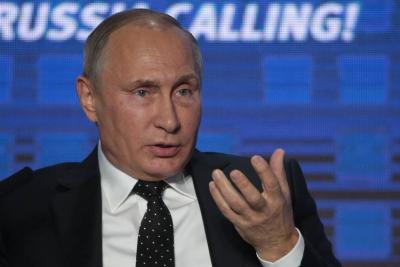Exporters Must Persuade Government to Start Backtracking.
Russia’s ban on importing New Zealand beef on the grounds of discovering additives in it has in fact all the characteristics of a reprisal for participating in the United States-invoked embargo.
New Zealand is viewed as an easy target as the Russians now start retaliating against those nations which supported the blockade.
The embargo mainly involved the United States and the EU. But anxious to appease the United States New Zealand deliberately demonstrated “solidarity” with the US, in the words of former premier John Key.
In return for this New Zealand took pole position in the now defunct Trans Pacific Partnership Treaty and as a special reward Auckland was chosen as the venue for participants to sign it.
There are indications that Russia will use several hygiene scares in recent years to choke off supplies of New Zealand dairy products.
At one time Russia was considered as New Zealand’s prime emerging market. But since the 1980s Russia has been supplanted by Asia.
It is here though that the US embargo on Russia did its most serious damage to New Zealand trade.
This occurred when France was prevented from sending its milk to Russia, along with milk exports from several other EU nations.
The result was the EU milk surplus now found its way to China, severely depressing demand for New Zealand milk.
New Zealand’s position in the US-led blockade of Russia will remain a problem for some years to come even though the embargo itself has now become moot under President Donald Trump.
Commodity exporters are trying to cool the ardour of New Zealand legislators in the matter of supporting the embargo.
This will allow them to mend fences with the Russians.
One advantage here will be the resignation at the end of last year of New Zealand premier John Key, known to be an ardent supporter of former United States president Barack Obama.
The public and indeed New Zealand’s legislators in the matter of the long-running embargo have something in common in that they have both been unaware of the consequences of participating in the blockade.
In France, in contrast, the consequences are well understood. Russia’s president Putin (pictured) deliberately called up well-publicised bulldozings of French produce found to have entered Russia via bills of ladings sourced in its old African colonies.
France, under pressure from the United States, was forced to abandon its showpiece advanced technology export which was its Mistral Class vessel for Russia’s navy.
Combined with the loss of its Russia disposal market for milk products the embargo is one of the factors behind the elimination of France’s ruling Socialist Party from any contention in this year’s presidential election.
| From the This email address is being protected from spambots. You need JavaScript enabled to view it. | Wednesday 8 February 2017 ||





